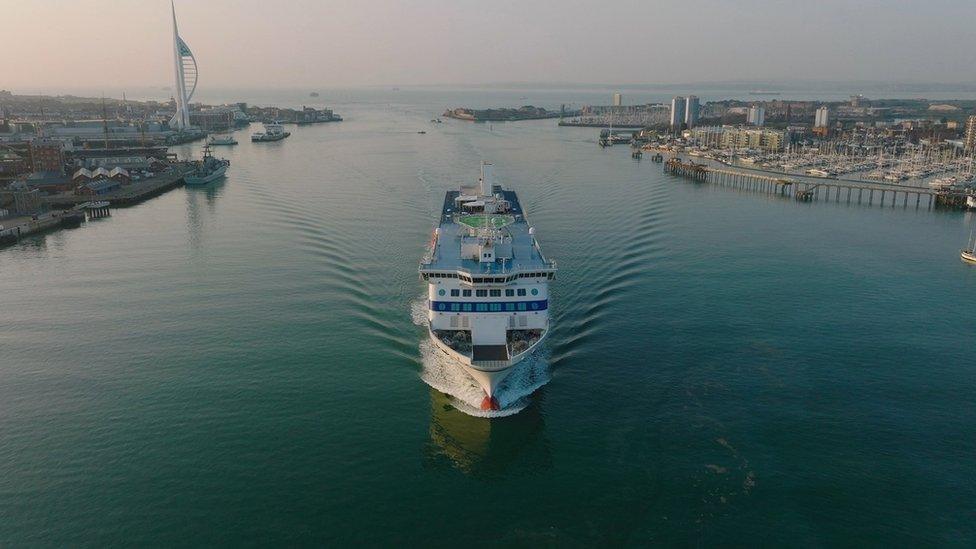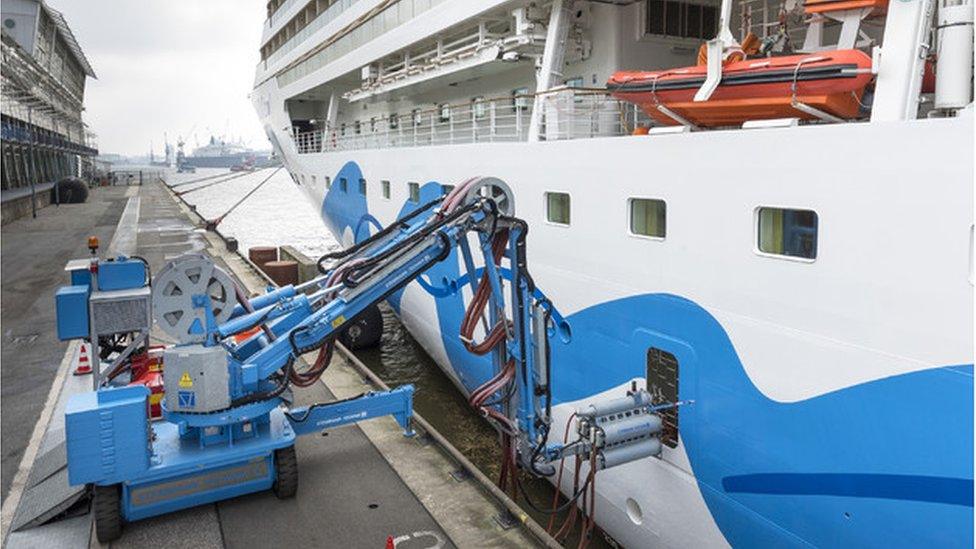Portsmouth to introduce port shore power system
- Published

The shore power systems at Portsmouth International Port will allow ships to use the port's power
Ships docking in Portsmouth are set to be able to plug into the National Grid, in a bid to reduce air pollution.
The new government-funded Sea Change system means vessels in three berths at Portsmouth International Port will not have to rely on running engines.
Portsmouth City Council, which owns the port, said the shore power system could save the equivalent of 20,000 tonnes of carbon dioxide emissions a year.
It said the project could improve air quality around the port.
It comes ahead of the arrival of two hybrid ships from Brittany Ferries, which are due to begin sailing in the spring of 2025 and will be able to make use of shore power.
'Pressing issue'
Gerald Vernon-Jackson, whose city council cabinet role includes responsibility for the port, said the new system was possible following a "massive upgrade" to the electricity supply to the port.
"Improving air quality is one of the most pressing issues facing Portsmouth today.
"It'll bring new high-skilled jobs and investment to the city, so I'm delighted we can now deliver this for the people of Portsmouth," he added.
Christophe Mathieu, chief executive of Brittany Ferries, said the technology would "fully unlock the potential" of its two new vessels.
Funding for the project has come from a £19.8m award from the government's Zero Emissions Vessels and Infrastructure competition, external.
Portsmouth aims to become the first net carbon-neutral port in the country by 2030.
Recent efforts to improve the port's climate credentials include the installation of 2,660 solar panels, which it is claimed can meet about a third of its demand for electricity.

Follow BBC South on Facebook, external, Twitter, external, or Instagram, external. Send your story ideas to south.newsonline@bbc.co.uk, external.
- Published14 May 2021
